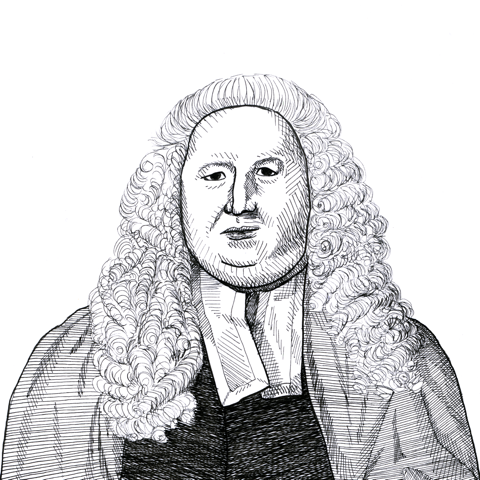
Sir William Blackstone declares unequivocally that slavery is “repugnant to reason, and the principles of natural law” and that it has no place in English law (1753)
Found in: Commentaries on the Laws of England in Four Books, vol. 1
Sir William Blackstone (1723-1780), the great English jurist, in his Commentaries of the Laws of England (1753) believed that slavery was "repugnant to reason, and the principles of natural law" and thus had no standing under English law
Colonies, Slavery & Abolition
I have formerly observed that pure and proper slavery does not, nay, cannot, subsist in England: such, I mean, whereby an absolute and unlimited power is given to the master over the life and fortune of the slave. And indeed it is repugnant to reason, and the principles of natural law, that such a state should subsist anywhere. The three origins of the right of slavery assigned by Justinian are all of them built upon false foundations … Upon these principles the law of England abhors, and will not endure the existence of, slavery within this nation; so that when an attempt was made to introduce it, by statute 1 Edw. VI. c. 3, which ordained, that all idle vagabonds should be made slaves, and fed upon bread and water, or small drink, and refuse meat; should wear a ring of iron round their necks, arms, or legs; and should be compelled, by beating, chaining, or otherwise, to perform the work assigned them, were it never so vile; the spirit of the nation could not brook this condition, even in the most abandoned rogues; and therefore this statute was repealed in two years afterwards. And now it is laid down, that a slave or negro, the instant he lands in England, becomes a freeman; that is, the law will protect him in the enjoyment of his person, and his property.